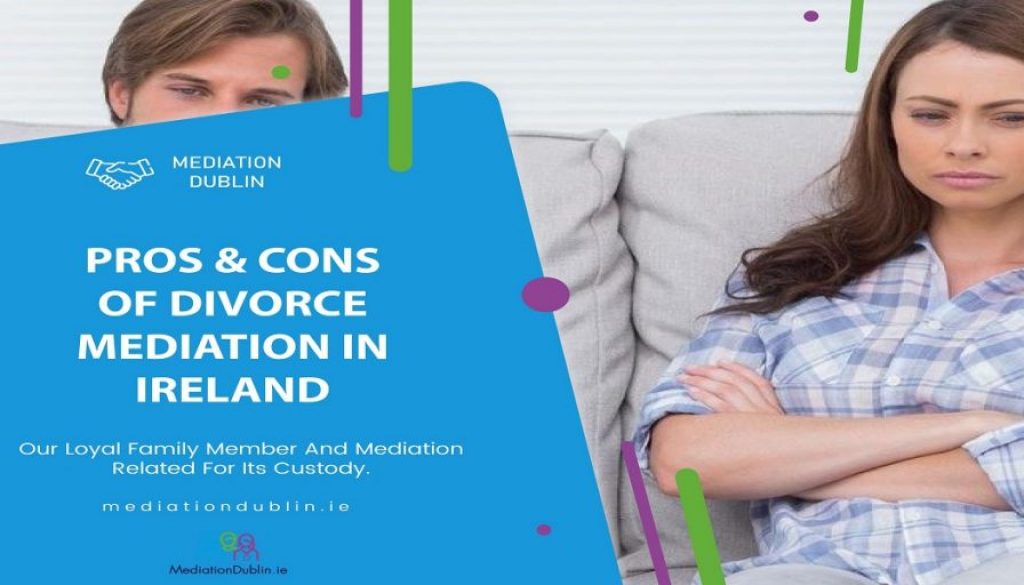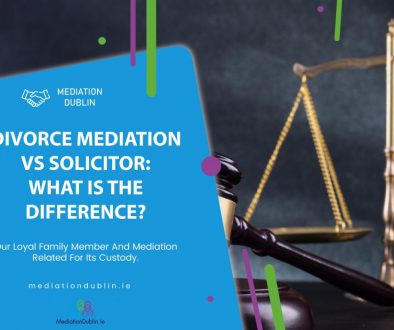Pros & Cons Of Divorce Mediation In Ireland: Advantages & Disadvantages

Divorce mediation has gained traction in Ireland as an alternative to traditional court litigation. While it offers a plethora of benefits, it’s also essential to consider its potential downsides.
Below, I’ve outlined the key advantages and disadvantages of opting for divorce mediation in Ireland:
Pros / Advantages of Divorce Mediation in Ireland
1. Cost-Efficiency
Savings: Mediation is often less expensive than traditional court litigation. The legal fees associated with courtroom battles can escalate quickly, whereas mediation typically involves fewer sessions and lower costs.
2. Time-Efficiency
Quicker Resolutions: Court processes can be protracted, sometimes stretching over years. Mediation, on the other hand, can often resolve disputes within a few sessions, spanning weeks or a couple of months.
3. Flexibility and Personalisation
Tailored Solutions: Mediation allows couples to craft solutions tailored to their unique family circumstances rather than relying on court-imposed decisions.
4. Confidentiality
Privacy: Unlike court proceedings mediation remains a private affair. Discussions and disclosures during sessions are kept confidential.
5. Preservation of Relationships
Reduced Animosity: The collaborative nature of mediation can reduce animosity and bitterness, paving the way for more amicable future interactions—especially vital when children are involved.
6. Emotional and Mental Well-being
Less Stress: Mediation’s non-adversarial approach can reduce stress and emotional turmoil, helping parties maintain better mental health during the separation process.
Cons / Disadvantages of Divorce Mediation in Ireland
1. Requires Cooperation
Mutual Willingness: Mediation requires both parties to be willing participants. If one party is uncooperative or not invested, mediation may prove ineffective.
2. No Guaranteed Resolution
Uncertainty: Mediation doesn’t always result in an agreement. If parties can’t reach a consensus, they might have to resort to traditional legal avenues, leading to additional time and cost.
3. Potential for Power Imbalances
Domination Risk: In situations where there’s a significant power imbalance—whether financial, emotional, or informational—one party might try to dominate the proceedings. This is where a good Mediator comes in.
4. Limited in Complex Cases
Complications: For extremely intricate cases with complicated assets or international dimensions, mediation might not be the ideal solution.
5. Lack of Legal Finality
Interim Step: While mediation can result in an agreement, it’s advisable to have it reviewed by legal professionals before signing. A Mediation Settlement is by default under Irish law a legally binding agreement (unless the parties do not wish it to be legally binding) so the engagement of a Solicitor to review the agreement is a good idea.
In Conclusion
Divorce mediation in Ireland offers a compelling alternative to traditional litigation, especially for couples seeking a more collaborative, cost-effective, and confidential resolution. However, it’s essential to weigh its benefits against its potential limitations.


